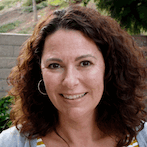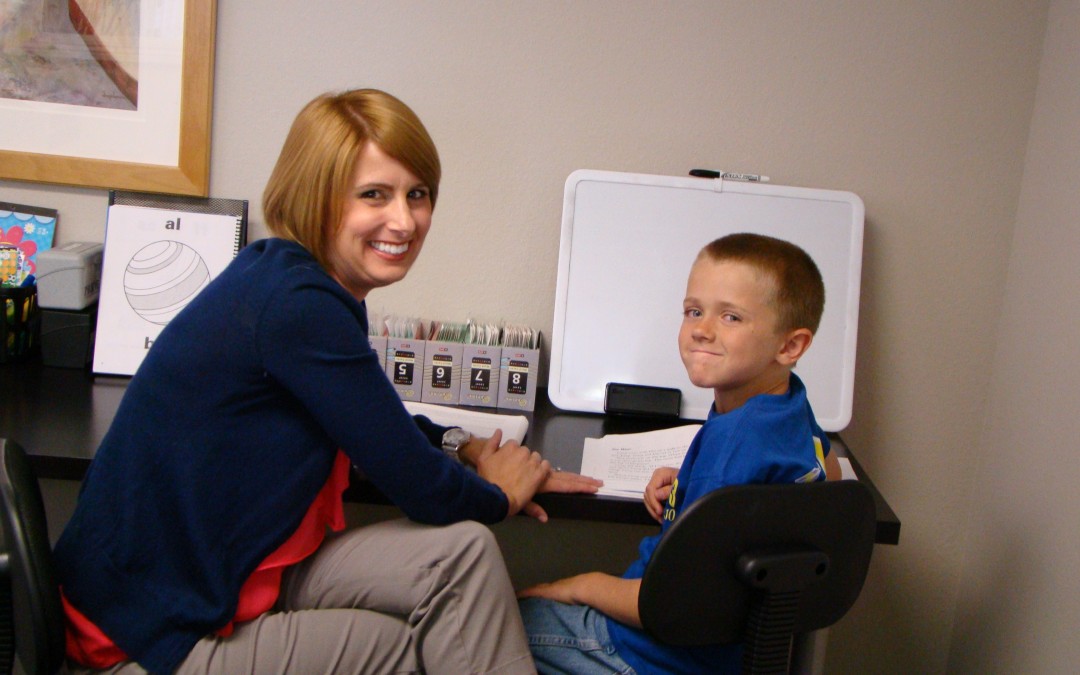
by PRIDE Reading Program Admin | Feb 22, 2016 | Articles & Resources, Summer Programs
At PRIDE Learning Center in Newport Beach, children with speech and reading challenges are given an opportunity to receive a giant boost in their weakest areas.
PRIDE Learning Center, a specialized tutoring center in Orange County, has announced it will offer a specialized summer reading camp to better meet the needs of children with dyslexia, auditory and visual processing, apraxia, speech delays, ADHD and other language and learning disabilities. This intensive yet fun summer reading camp is available to the public, and is designed to help children ages 4-18 develop a strong reading foundation for academic and emotional success.
According to Christine McLarty, the Director at the Newport Beach Learning Center, “the summer reading camp at PRIDE is designed to help students in a way that a typical summer reading program cannot. All of the teachers at PRIDE Learning Center are certified in Orton-Gillingham, most of them holding Master’s Degrees and having strong special education backgrounds.”
The summer reading camp at PRIDE Learning Center will run weekly from June – August and children can attend from either 9:00am – 12:00pm or 12:30pm – 3:30 pm Monday –Friday. All lessons at PRIDE Learning Center are one-on-one Orton-Gillingham language and reading lessons.
“The summer months are such a wonderful and effective time for struggling students to boost their skills and close the reading and comprehension gaps,” says McLarty. “Although our reading camp is intensive and highly structured, the staff at PRIDE make it really fun and super engaging for the kids. The kids love it and we have families return to us each summer, many of them from abroad where services are very limited.”
PRIDE Learning Center is a leading tutoring company in Los Angeles and Orange County, for students with learning disabilities. Their reading and comprehension program has been shown to boost student performance almost 2 grade levels in just 3 months. The Orton-Gillingham instruction develops the underlying reading and comprehension skills necessary for students with dyslexia, auditory processing, visual processing, autism, apraxia, ADHD and other learning challenges. It is common to see years of reading improvement after just weeks of intensive instruction.
Individuals interested in the summer reading camp at PRIDE Learning Center can call (949) 484-0230 or email info@pridelearningcenter.com. A summer registration form is on the website at: www.pridelearningcenter.com

by PRIDE Reading Program Admin | Feb 20, 2016 | A PRIDE Post, Auditory Processing Disorder
Almost every school activity, including listening to teachers, interacting with classmates, singing along in music class, following instructions in physical education, etc, depends on the ability for students to process sounds and have a strong auditory system in learning. But what happens if this auditory system has deficits? Can a child still learn?
Does my child have Auditory Processing Disorder?
Auditory Processing (APD) is a very common learning disability and affects about 5% of school-age children. Auditory Processing can present itself with many different symptoms and behaviors. Often these behaviors resemble those seen with other learning challenges, like language difficulties, attention problems and autism. Most children with auditory processing difficulties show only a few of the following behaviors. No child will show all of them. However, any child who displays several of these symptoms should be carefully evaluated for auditory processing disorder.
- Delayed speech.
- Persistent articulation errors.
- Abnormally soft, loud, flat, formal, or “pedantic” speaking voice.
- Difficulty conducting casual conversations.
- Difficulty reading or spelling due to problems discriminating word sounds.
- Difficulty following oral directions.
- Difficulty organizing behaviors.
- A tendency to appear quiet, distracted, or off topic during group discussions or to interrupt or blurt out answers.
- Long delays before responding to questions or instructions.
- Preferences for nonverbal tasks or a markedly higher performance IQ than verbal IQ.
- Difficulty taking notes.
- Worsening performance in higher grades as oral instruction load and receptive language demands increase.
- Difficulties with inference, abstraction, and figurative language.
- Difficulty hearing in the presence of background noise.
- Difficulty understanding what’s said.
- A tendency to ask for restatement or clarification, or repeatedly saying “what?” or “huh?”
- Marked difficulty understanding speakers with particularly high or low-pitched voices or with prominent accents.
How does Auditory Processing affect my child’s learning?
Children with Auditory Processing Disorders have difficulties distinguishing the sounds or phonemes in spoken words, especially those in complex words and sentences. This is referred to as Auditory Discrimination Deficits. If a child has difficulties discriminating sounds in language, then words will sound unclear or distorted as well as many will sound alike. This in turn will affect a child’s development of language skills. They may have trouble speaking and listening, because of problems learning basic grammar and word meanings. Many vowel and consonant sounds may sound the same to them, especially when spoken quickly. As a result, not only will they have difficulty hearing the differences between words that sound alike (think, thing, sink, thin) they will also have difficulty understanding the connections between those words and the letters used to represent them.
This is why children with Auditory Processing Difficulties often have trouble with reading and spelling. Since they cannot hear the sound distinctions between words, the rules linking sounds to letters and letter groups can be hard for them to master.
Most children with Auditory Processing Disorder have difficulty hearing in the presence of background noise. This is referred to as Auditory Figure-Ground Deficits. Although the children often hear well enough at home or in quiet environments, they may appear hard of hearing or even functionally deaf in noisy environments such as school.
In the classroom, a child with Auditory Processing Deficits will have great difficulties staying focused on a listening task. This is referred to as Auditory Attention Deficits. If a teacher is giving a lecture, for example, the student might listen in for a few minutes but then drift off and daydream missing out on significant amounts of information.
Students with Auditory Processing Challenges have great difficulties remembering information given. This is referred to as Auditory Memory Deficits. If the teacher says, “get a piece of paper and a pencil out of your desk and write down your spelling words,” the student may get confused because there are too many commands at once. Impairments in the auditory memory deficits can severely weaken not only long-term memory but also language development and comprehension.
How can a child with Auditory Processing Disorder get help?
The sooner a child with Auditory Processing Disorder is given proper teaching strategies, particularly in the very early grades, the more likely it is that they will have fewer or milder difficulties later in life. These students will need a very structured, systematic, cumulative, repetitive and multisensory teaching method such as the Orton-Gillingham approach. By using a multisensory approach the student will be able to learn using the visual and kinesthetic modalities while simultaneously strengthening the auditory channels.
The best learning environment for a student with auditory processing is always one-to-one with very minimal distractions and outside noises. Students who have severe auditory processing disorder may need an intensive training program to catch up and stay up with the rest of their class. During this intensive training, students will overcome many reading, writing, spelling and comprehension difficulties and learn strategies that will last a lifetime.
Teachers and parents both need to remember that Auditory Processing Disorder is a real condition. The symptoms and behaviors are not within the child’s control. Children with Auditory Processing Disorder are not being defiant or being lazy. A child with Auditory Processing Disorder can go on in life and become just as successful as other classmates.
Learn more about the New PRIDE Reading Program
________________________________________________________________________________________

Karina Richland, M.A. is the Founder of PRIDE Learning Centers, located in Los Angeles and Orange County. Ms. Richland is a certified reading and learning disability specialist. Ms. Richland speaks frequently to parents, teachers, and professionals on learning differences, and writes for several journals and publications. You can reach her by email at karina@pridelearningcenter.com or visit the PRIDE Learning Center website at: www.pridelearningcenter.com

by PRIDE Reading Program Admin | Feb 19, 2016 | Pride Yorba Linda, Summer Programs
PRIDE Learning Center, a dyslexia tutoring company, will be expanding its services to the Yorba Linda community this summer for the second year. This reading camp is aimed at students from 4-18 years old who have specific learning disabilities with reading, writing and comprehension. Students will attend sessions from 9:00am – 12:00pm Monday through Friday or from 12:30 – 3:30 Monday – Friday.
The dyslexia summer camp at PRIDE Learning Center includes one-on-one tutoring using the Orton-Gillingham approach with reading, writing and comprehension lessons. One of the most highly effective methods for teaching students with Dyslexia is the Orton-Gillingham approach. It teaches the structure of the language using various multisensory techniques that encourage students to see, hear and write a concept at the same time.
“We often see our campers making one to two years worth of progress during our 4-6 week summer camps,” says PRIDE Learning Center’s Director Karina Richland. “The Orton-Gillingham program is like a life-saver for dyslexic kids. Many of them have tried so many different programs and this is finally the one that works for them,” says Richland.
PRIDE Learning Center’s summer dyslexia camp will be held at 19045 Yorba Linda Blvd in Yorba Linda. There is limited space available and early registration is recommended. For more information visit the PRIDE Learning Center website at www.pridelearningcenter.com or call 866-774-3342.

by PRIDE Reading Program Admin | Feb 8, 2016 | A PRIDE Post, Reading Fluency, Reading Skills
Reading is a skill that needs to be practiced regularly. Without practice, young readers will not develop the vocabulary, the skills, and the fluency necessary to become strong readers. But many children, even those with strong reading skills, do not get enough practice and as a result become disinterested in reading, and can quickly become discouraged. Here are some practical tips for when your chid doesn’t want to read:
- Find books with cartoons or humor — which only a child would find amusing.
When your child doesn’t want to read… don’t make everything a learning lesson. Letting children read books such as Captain Underpants or Diary of a Wimpy Kid will keep them engaged and entertained. Although adults might find the language and humor distasteful, children find it very funny and are therefore more motivated to read.
- Zero in on your child’s passions and choose books and magazines focused on areas of interest.
If your child doesn’t want to read try finding books on specific topics to keep your child’s interest, such as science, baseball, American Girl dolls, etc. Children who already have the background knowledge, language and vocabulary before beginning a book will have an easier time getting through the reading. Order a magazine subscription to Sports Illustrated for Kids or Nickelodeon. Children love receiving mail and reading ‘their’ magazines.
- Get your child an email account and, together, check it regularly.
Using the computer to read and write is a huge advantage for most students. By letting young children write and send email, they practice reading, writing and spelling. Teach your child how to use spell check before sending off messages. Be sure to monitor your child’s ‘pen pals’ – who is your child writing to and receiving mail from? Let your child pick out a few family members, including grandparents and maybe two or three friends. You will find that by using email regularly, your child becomes very strong in typing (keyboarding) and using the computer.
- Find an author that your child likes and stick with it.
If your child loves reading Hank Zipzer by Henry Winkler or Tales of a Fourth Grade Nothing by Judy Blume, then you have found a writing style which stimulates your child’s interest. Go through the entire series. Don’t worry if the reading is below grade level: your child is reading for pleasure and for practice. Also remember, just because you loved a certain author or series when you were a kid, this doesn’t mean your child will love the same books you did. Browse the bookstore or library and find the newest, most modern series. Usually these books contain language and themes to motivate the most reluctant reader. Kids need to relate to what they are reading, and modern language usage helps.
- Let your child talk to you about the book they are reading.
When we adults read books we enjoy, we like to talk about them. After reading a book, we don’t necessarily want to write a summary, book report or make a project of it. We just want to discuss it with someone else. Look interested in what your child is reading (yes, even if it is Captain Underpants) and ask questions and have your child tell you about it. Laugh with your child about the funny parts (even at the bathroom jokes) and help your child feel good about reading.
Learn more about the New PRIDE Reading Program
__________________________________________________________________________________________________________
Karina Richland, M.A., E.T. is the Managing Director of Pride Learning Centers, located in Los Angeles and Orange County. Ms. Richland is a reading and learning disability specialist. Ms. Richland speaks frequently to parents, teachers, and professionals on learning differences, and writes for several journals and publications. You can visit the Pride Learning Center website at: www.pridelearningcenter.com

by PRIDE Reading Program Admin | Jan 24, 2016 | A PRIDE Post, Nutrition
By Jeanne Peters RD
Research has proven that for the most part, great brains are made, they are not born. From birth to age 5, up to 30 IQ points are up for grabs. Children may be born with the genetic potential to have a higher than average IQ, but if they are not properly nurtured and nourished during the first few years of life, they will not achieve their full potential. So here are a few proven points for nourishing a smart, calm child:
1. Feed your toddler to teen an optimal diet to enhance brain growth. Even a slight deficiency in a key vitamin, minerals like magnesium, or healthy omega fats during the time when the brain is going through its spectacular growth spurt can result in a lower IQ, poor test scores or depression. Any child with ADD or ADHD should be tested for iron/iodine and zinc deficiencies to rule out nutrition as part of the issue.
2. Add healthy fats into the diet, daily! The brain is 60% or more fat by weight. This indicates the great need the brain has to be fed healthy fats — not the kind of fats found in gold fish crackers or cream cheese on your child’s bagel, but fats found in fish or fish oils, whole eggs or flax seed meal that you can easily sneak into oatmeal or a smoothie as a part of your “stealth nutrition” plan.
3. Add in quality protein at every meal, especially breakfast: This is the nutrient that is critical for increasing the neurotransmitter norepinephrine, which allows the mind to focus. A child cannot learn on cheerios or a pop tart for breakfast. Instead, try a glass of kefir smoothie or egg on toast.
4. Add in one new vegetable and fruit serving per day: Research indicates that one third of children under two years of age eat no fruit or vegetables. More than 60 percent of 1-year-olds eat dessert or candy daily, and 30 to 40 percent of children aged 15 months or older have a sugary fruit drink daily. Empty calories are replacing the nutrient-dense foods children need to feed a healthy brain. Look at your own diet and determine if you are role modeling healthy eating for your children. If you or your children could use a tune-up, consider an appointment with a Registered Dietitian.
Learn more about the New PRIDE Reading Program
________________________________________________________________________________________________
Jeanne Peters RD is co-founder and Nutrition Director for the Nourishing Wellness Medical Center in Torrance, CA. She has over 25 years experience of promoting healthy, sustainable food and lifestyle choices as a Registered Dietitian, Certified Wellness Coach and, most importantly, as a mother of three boys & grandmother of three toddlers. Awarded the California Young Dietitian of the Year in 1995, her passion is sharing ways to nourish healthy families through real wholesome foods! Visit her website at www.nourishingwellness.com
Page 11 of 26« First«...910111213...20...»Last » 





